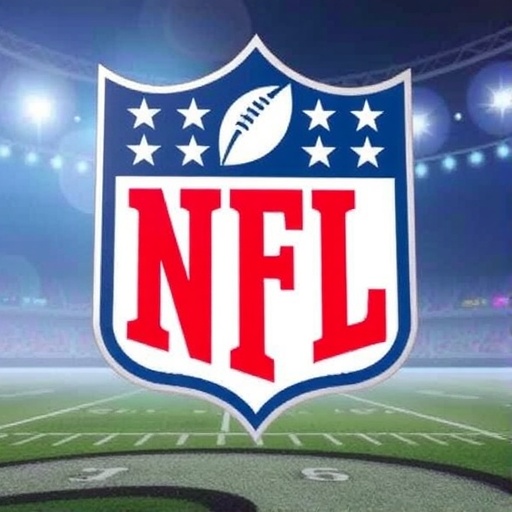NFL Breaks Tradition with Premature Media Rights Discussions
In a move that could reshape the landscape of American sports broadcasting, the NFL is contemplating renegotiating its lucrative media rights deals years ahead of schedule. Traditionally locked in until the 2029-30 season with opt-out clauses, the league’s current broadcasting deals—worth over $10 billion annually—are now under scrutiny as undervalued assets amid skyrocketing viewer demand. This surprising pivot comes as NFL viewership continues to dominate, with Super Bowl LVIII drawing a record 123.4 million viewers earlier this year, underscoring the league’s unmatched appeal in the media market.
- NFL Breaks Tradition with Premature Media Rights Discussions
- Fox Sports CEO Eric Shanks Champions Early NFL Media Rights Talks
- NBC Sports Steps Up with Bold Interest in NFL Broadcasting Extensions
- Why Current $10 Billion NFL Media Rights Deals Are Deemed Undervalued
- Future Ramifications: How Early NFL Media Rights Shifts Could Transform Broadcasting
The NFL’s media rights, which include partnerships with major networks like CBS, ESPN, Fox Sports, and NBC, form the backbone of the league’s revenue stream. These deals, finalized in 2014 and extended through 2033, distribute games across broadcast, cable, and streaming platforms, generating unprecedented income that fuels player salaries, stadium upgrades, and global expansion. However, industry insiders whisper that the $10 billion figure, while massive, fails to capture the true value in today’s fragmented media ecosystem, where digital streaming and international audiences are exploding.
Commissioner Roger Goodell has been vocal about the league’s financial health, stating in recent interviews that the NFL must stay ahead of market shifts. ‘Our partnerships are vital, but we can’t ignore the evolving landscape,’ Goodell remarked during a press conference at the league’s annual owners’ meetings. This sentiment has sparked early talks, potentially unlocking billions more in revenue well before the contractual deadlines.
Fox Sports CEO Eric Shanks Champions Early NFL Media Rights Talks
Fox Sports is leading the charge among broadcasters eager to lock in future NFL media rights sooner rather than later. CEO Eric Shanks, a veteran in sports media, recently expressed strong interest in extending the network’s deal, which currently includes Thursday Night Football and select playoff games. ‘We’re thrilled with our NFL partnership and believe there’s tremendous value in discussing an early extension,’ Shanks told reporters at the Sports Business Journal’s summit. His comments highlight Fox Sports’ commitment to the league, especially as the network invests heavily in production quality to compete with streaming giants.
Under the current broadcasting deals, Fox Sports pays approximately $2.7 billion annually for its NFL package, a figure that has proven its worth through high ratings. For instance, the 2023 season saw Fox’s NFL broadcasts average 17.9 million viewers per game, a 7% increase from the previous year. Shanks emphasized that early renegotiation could allow Fox to integrate more digital rights, appealing to younger fans who prefer mobile viewing. This strategic enthusiasm stems from Fox’s broader portfolio, including college football and MLB, but the NFL remains the crown jewel, driving ad revenue and subscriber growth.
Shanks’ proactive stance isn’t isolated; it’s part of a broader industry trend where networks anticipate bidding wars. Analysts note that Fox Sports’ interest could pressure competitors, ensuring the NFL secures top dollar. ‘Fox has been a reliable partner, and their willingness to talk early shows confidence in the league’s trajectory,’ said Bob Thompson, a media professor at Syracuse University. This could mean enhanced coverage, such as more interactive features or international broadcasts, benefiting fans worldwide.
NBC Sports Steps Up with Bold Interest in NFL Broadcasting Extensions
Joining Fox in the early media rights fray is NBC Sports, whose executives have signaled openness to renegotiating their NFL deal ahead of the 2029-30 timeline. NBC, which airs Sunday Night Football—the league’s marquee primetime package—has been a cornerstone of NFL broadcasting deals since 2006. The network’s current contract, valued at around $2 billion per year, has delivered blockbuster moments, like the 2022 Peacock-streamed playoff game that reached 28 million viewers.
NBC Sports President Rick Cordella underscored the mutual benefits in a statement to industry publication Variety: ‘The NFL’s Sunday Night Football is appointment viewing for millions, and we’re excited about the possibility of extending that legacy through early discussions.’ This interest aligns with NBCUniversal’s push into streaming via Peacock, where NFL games have boosted subscriptions by 20% in recent quarters. By engaging now, NBC aims to safeguard its primetime slot against rivals like Amazon, which holds Monday Night Football rights.
The value of NBC’s NFL package is evident in its advertising prowess; a 30-second Super Bowl ad on NBC fetched up to $7 million in 2023. With the league’s popularity undiminished—regular season games averaging 17 million viewers—Cordella’s team sees early talks as a way to incorporate emerging technologies like VR broadcasts or AI-driven highlights. ‘This isn’t just about money; it’s about innovating how fans experience the game,’ Cordella added. Such moves could expand NBC’s reach, particularly in key demographics where NFL viewership skews male and over 35, but with growing appeal to Gen Z through social media clips.
Why Current $10 Billion NFL Media Rights Deals Are Deemed Undervalued
At the heart of the NFL’s push for early renegotiation lies a consensus that the existing media rights deals, totaling over $10 billion annually, no longer reflect the league’s market dominance. Signed a decade ago, these broadcasting deals were groundbreaking at the time, but inflation, digital disruption, and the NFL’s cultural ubiquity have eroded their relative worth. For context, the deals distribute rights as follows: CBS and Fox split Sunday afternoons, ESPN handles Monday nights (with Amazon taking over in 2023), NBC owns Sundays, and Netflix recently inked a Christmas Day package for 2024.
Financial experts peg the undervaluation at 20-30%, citing comparable deals in other leagues. The NBA’s new media rights pact, valued at $76 billion over 11 years, equates to about $6.9 billion annually—less per game but with basketball’s shorter season. Meanwhile, the NFL’s 272 regular-season games plus playoffs generate far more content. ‘The NFL is the gold standard in sports media, yet their deals lag behind the revenue potential from streaming and global markets,’ opined Bill Crown, a sports economist at Deloitte.
Statistics bolster this view: NFL media revenue has grown 15% year-over-year, per league reports, fueled by international series in London, Mexico City, and Germany, which drew over 100,000 fans in 2023. Domestic viewership, too, remains robust, with 93% of Americans watching at least one game last season. Undervaluation pressures stem from rising production costs—HD and 4K broadcasts aren’t cheap—and the shift to cord-cutting, where 50 million U.S. households now rely on streaming. Early talks could inflate values to $12-15 billion annually, per projections from PwC, allowing the NFL to invest in player safety, diversity initiatives, and youth programs.
Stakeholders like team owners, who receive about 48% of media revenue, stand to gain immensely. ‘These deals are the lifeblood of our franchises,’ said Dallas Cowboys owner Jerry Jones, a vocal advocate for maximization. Yet, challenges loom: antitrust scrutiny from the DOJ could complicate extensions, and smaller networks might cry foul over big players like Fox Sports and NBC dominating bids.
Future Ramifications: How Early NFL Media Rights Shifts Could Transform Broadcasting
As the NFL forges ahead with potential early media rights renegotiations, the broadcasting world braces for seismic changes that could redefine fan access and industry norms. Fox Sports and NBC’s expressed interest signals a competitive rush, potentially driving up values and integrating more streaming elements into traditional deals. Imagine a future where NFL games are seamlessly available on hybrid platforms, blending live TV with on-demand highlights, all secured through these proactive talks.
Looking ahead, successful extensions might encourage other leagues, like the MLB or NHL, to follow suit, accelerating a media rights arms race. For fans, this could mean lower streaming fees if rights are bundled efficiently, or enhanced experiences like personalized game feeds. However, risks include higher ad rates passed to consumers or fragmented viewing if deals favor paywalls over free broadcasts.
Industry watchers predict negotiations could commence as early as 2025, with opt-out clauses providing leverage. ‘This is a bold strategy by the NFL to capitalize on peak popularity,’ noted Sarah Levin, a media analyst at Nielsen. Ultimately, these moves promise to fortify the league’s $20 billion-plus annual revenue, ensuring the NFL’s throne in sports entertainment for decades. As talks progress, all eyes will be on how Fox Sports, NBC, and others navigate this high-stakes arena, potentially ushering in an era of unprecedented broadcasting innovation.








